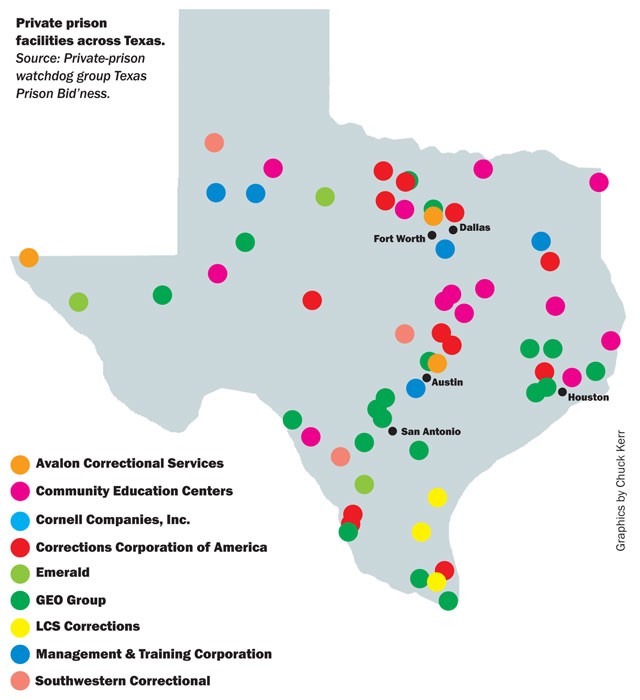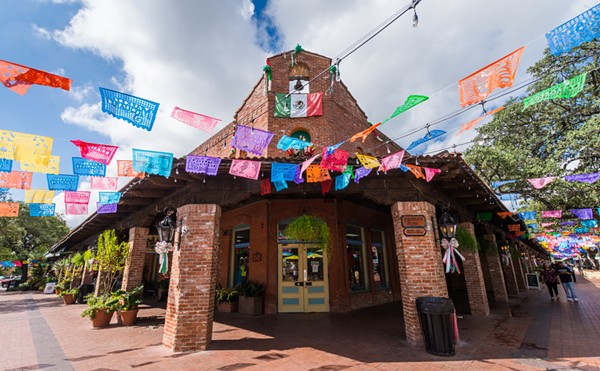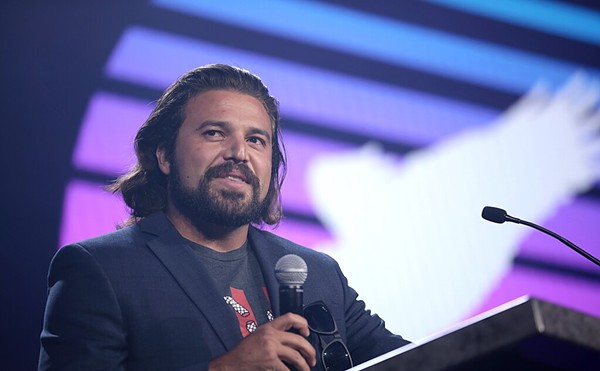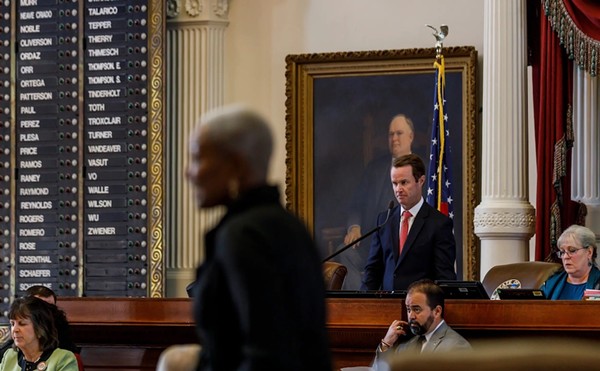Private-prison detractors have long accused businesses in the incarceration-for-profit game of cutting corners to boost revenue. With dozens of for-profit corrections facilities across Texas housing a mix of federal convicts, undocumented immigrants, juvenile offenders, and local inmates, there’s ample anecdotal evidence to support their claims, including regular complaints of squalid facilities, wrongful deaths, shoddy medical care, and sexual abuse at the hands of private-prison guards.
Still, many counties have continued to turn to private prisons because of the supposed cost savings. As Bexar County Commissioner Kevin Wolff eyes the local jail, officials in Harris County, home to the state’s largest lockup with nearly 10,000 inmates, are also studying privatization.
Still, it’s unclear how much counties and states save by privatizing — that is, if they save at all. As The New York Times reported last spring, data from another top U.S. privatizer, the Arizona Department of Corrections, showed that inmates in some of the state’s for-profit prions cost as much as $1,600 per year more per inmate than those in state-run facilities. Recently in Florida, after state lawmakers passed a plan to privatize some 30 prisons in 18 counties, the Hernando County Sheriff’s Office axed it’s 22-year relationship with the Corrections Corporation of America, the country’s largest private prison contractor, and de-privatized the county lockup, saving roughly $1 million in the process, according to the St. Petersburg Times.
Though conservative public-policy think tanks and some prison-industry-funded studies argue over the cost savings, a 2007 University of Utah study concluded: “Cost savings from privatizing prisons are not guaranteed and appear minimal,” adding that publicly managed prisons tend to deliver better job and skills training programs while seeing fewer inmate grievances.
In Texas, during the Legislative session last spring, committee discussions over jail privatization revealed just how private companies manage to save the state some cash — namely by slashing guard pay and offering fewer benefits. During a House Corrections Committee Hearing in April, Rep. Erwin Cain suggested privately run jails offer the same or better services as state-run facilities by limiting “state exposure to pension and healthcare costs” in the long term. TDCJ Executive Director Brad Livingston later told lawmakers that Texas’ five privately run state prisons saved his department some $7 to $8 per inmate per day because of lower salaries and reduced benefits.



















